Managing rentals and finances on separate platforms is a recipe for delays, errors, and missed revenue. In the AV rental industry, accuracy and efficiency aren’t just nice to have, they’re business imperatives. Yet many businesses still juggle accounting and inventory with disjointed systems, leading to time-consuming reconciliations, duplicate entries, and missed or delayed billing.

This blog explores how rental accounting integration simplifies financial operations, drives faster decision-making, and ultimately empowers your business to scale with confidence.
The Disconnect Between Rental Operations and Financial Oversight
For years, rental businesses have managed inventory, scheduling, and finances on separate tools. While this may work for small teams, the challenges grow exponentially as operations scale:
- Manual data entry across systems invites costly errors. Without integration, staff often have to enter the same booking, inventory, or payment data into multiple platforms. This redundancy increases the likelihood of mistakes (duplicate entries, missing details, incorrect billing, etc.) that can erode customer trust and profitability.
- Delayed invoicing leads to cash flow bottlenecks. Finance teams waiting on data from operations are unable to generate timely invoices. These delays can cascade into late payments, strained client relationships, and disrupted cash flow, making it harder to cover overheads or reinvest in business growth.
- Lack of visibility into financial performance hinders strategic planning. When operations and financial data aren’t unified, it’s difficult for leadership to get a clear view of profitability, resource utilization, or cost centers. This limits your ability to make informed decisions around pricing, asset investments, or scaling.
- No clear audit trail makes it difficult to track payments, damages, and asset depreciation. Without a centralized system, tracing financial history (such as tracking when an asset was rented, returned damaged, invoiced, or written off) becomes manual and unreliable. During audits, this lack of transparency creates risk and can lead to compliance issues.
When financial data is siloed from operations, the result is inefficiency and missed opportunities. Fortunately, integrated systems have changed the game.
Top 5 Benefits of Rental Accounting Integration
Integrating your rental platform with accounting tools eliminates duplication, boosts accuracy, and helps teams work more strategically. Here’s how:
1. Automate Invoicing and Payment Tracking
Manual invoice generation can take hours and still result in missed charges. Integrated platforms can automatically generate invoices based on completed bookings, services rendered, fees, and custom billing schedules.
Result: Faster billing cycles and fewer missed charges.
2. Sync Inventory and Financial Records
When inventory systems are connected to your general ledger, asset values and depreciation are tracked in real time. For businesses using rental asset management software to handle high-value equipment, this is especially useful.
Result: Accurate asset valuation and simplified audits.
3. Real-Time Revenue Insights
Unified platforms, like Flex, consolidate rental activity and financial performance, allowing you to monitor profitability per asset or asset category.
Result: Data-driven decisions on pricing, asset purchases, and team allocation.
4. Streamline Tax and Compliance Reporting
Manually preparing for audits or tax filing is time-consuming and prone to error. With synced data, reports are auto-generated, reducing the burden on finance teams.
Result: Greater accuracy, less admin overhead, and compliance peace of mind.
5. Reduce Human Errors and Reconciliation Time
Entering the same data into multiple systems is not only tedious but increases the risk of inconsistencies.
Result: Integrated software reduces the workload and minimizes costly financial discrepancies.
The Role of Modern Rental Platforms in Financial Integration
Advanced audio visual rental software now comes with built-in or API-based integrations for popular accounting systems like QuickBooks, Xero, or Sage. These integrations bridge the gap between front-end operations and back-end finance, enabling real-time data sync and collaboration between teams.
Key Features Supporting Integration:
- Custom invoice templates linked to bookings
- Tax rate automation
- Payment reminders and status tracking
- Credit memos and damage charge automation
- Real-time syncing with accounts receivable and payable
By combining accounting with cloud-based rental tracking, businesses can maintain accurate billing while staying on top of equipment status, return dates, and service charges—all in one system.
Why It Matters for Scaling Businesses
As AV rental companies grow, financial complexity increases. Without integration, managing multiple clients, projects, locations, and payment terms becomes overwhelming.
A recent report revealed that businesses using integrated financial tools are 30% more likely to report improved cash flow and reduced month-end close times. By leveraging tools that bring operations and finance together, companies free up their teams to focus on strategy—not just number-crunching.
Why Flex Is the Smart Choice for Integrated Financial Management
Flex offers powerful rental accounting integration features designed to simplify billing, financial tracking, and reporting. Whether you use QuickBooks, Xero, or another platform, Flex allows seamless syncing of invoices, tax data, and payment records—reducing administrative workload while improving financial transparency.
Combined with its event production inventory system, scheduling tools, and rental quote generation software, Flex enables businesses to manage the full rental lifecycle—from inventory check-out to invoicing—within a single interface.
Simplify Finances, Scale Smarter
Your AV rental operation shouldn’t be held back by disconnected spreadsheets or late invoices. With rental asset management software that integrates seamlessly into your accounting systems, you gain control, clarity, and confidence.
Explore how Flex Rental Solutions helps rental businesses simplify their financial workflows and power smarter growth with end-to-end integration. Sign Up Today!
